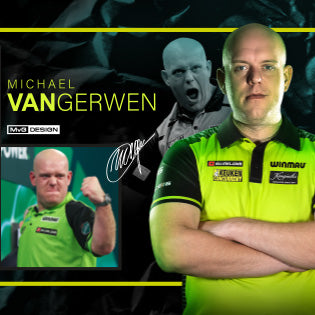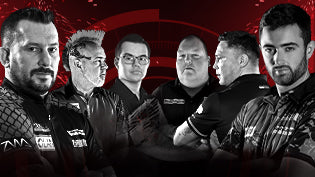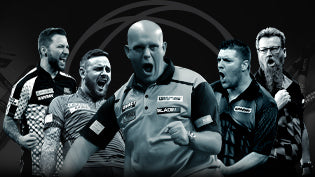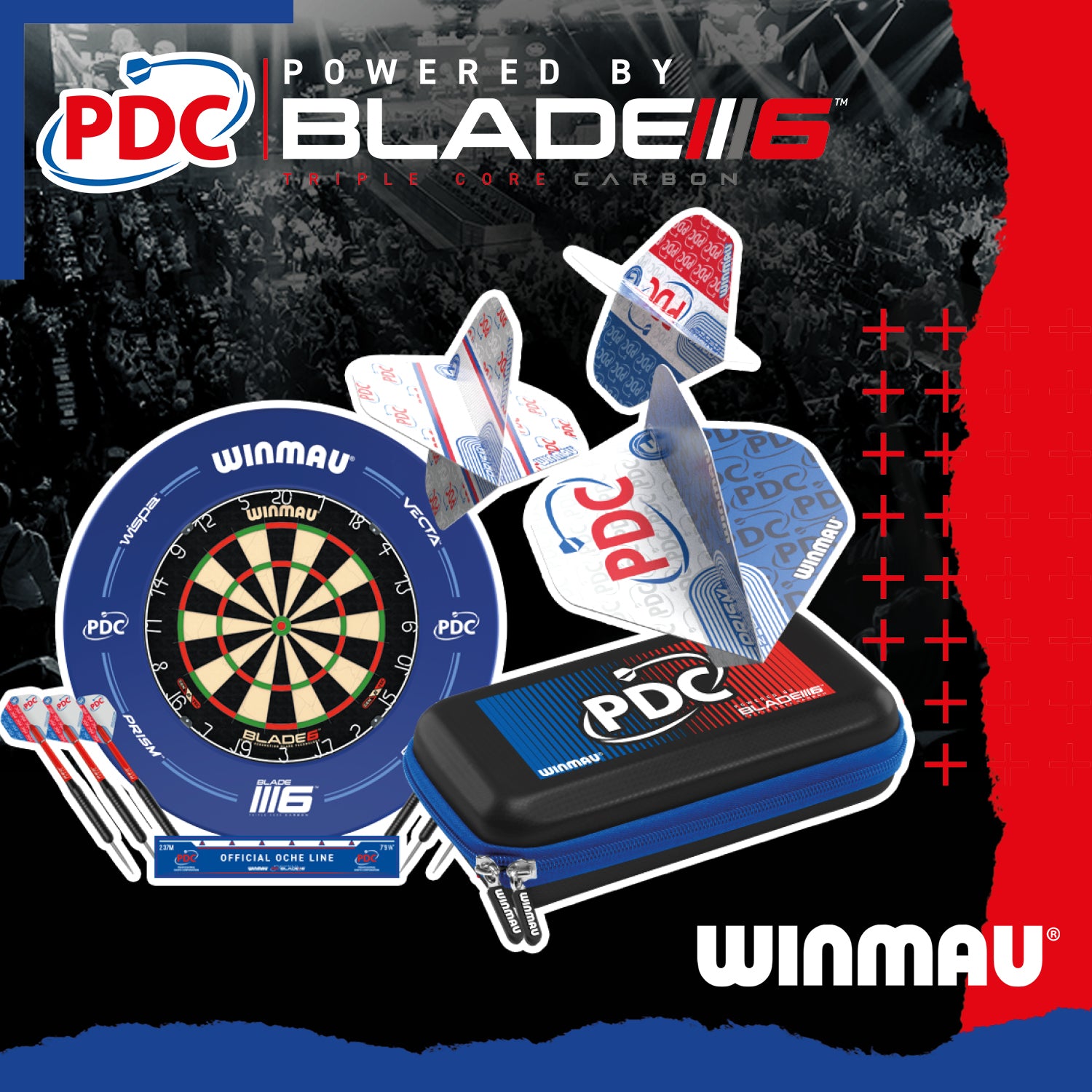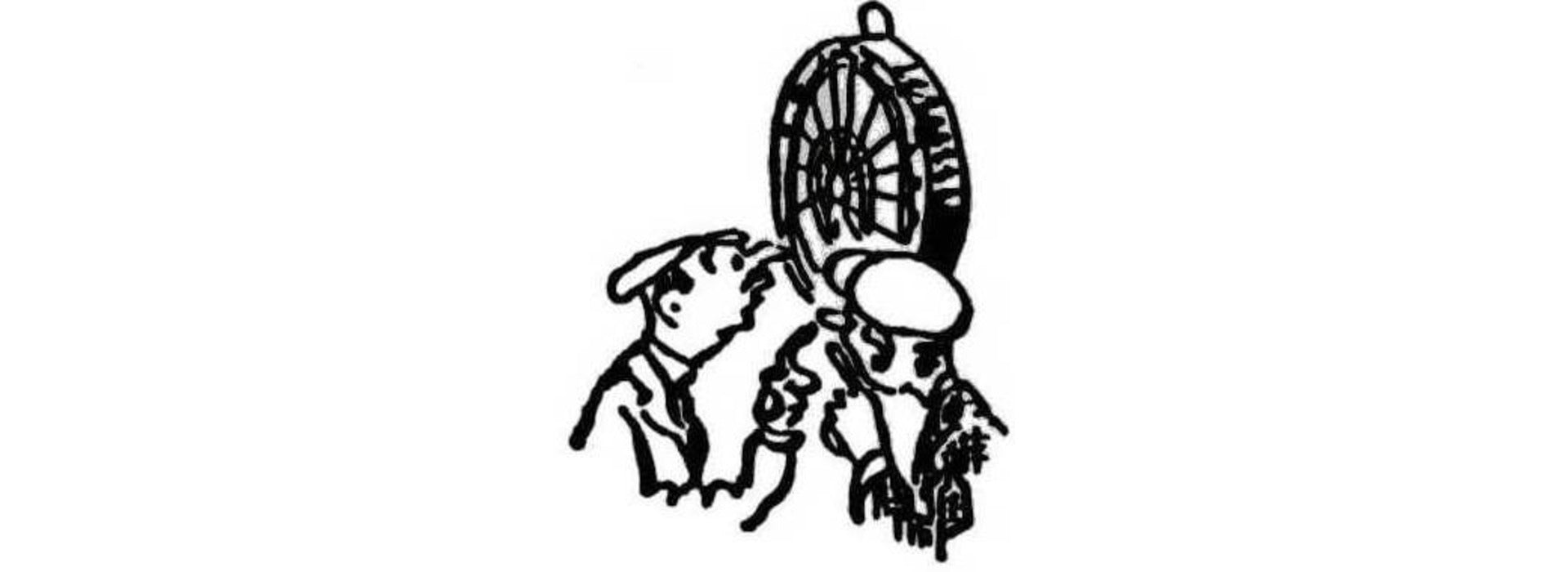
DR DARTS NEWSLETTER - PATRICK CHAPLIN - MAY'24 EDITION


Thinking of the impact that Luke ‘The Nuke’ Littler has had on darts since Christmas made me think about what opportunities were available to young people, particularly the boys, back in the day. THEN, while I was wondering, Jeremy Smith wrote
‘Hi Patrick, after viewing the Jocky Wilson story on BBC4 [on 31st March] where you were quoted, I was wondering if you had any history of my time rubbing shoulders with the Bristows, Lowes, Wilsons, etc. As a 17-year-old, I won the 1978 Daily Mirror British Junior Championship…I've trawled the internet for any such coverage to no avail. Could you supply me with any archive? Thanks.’
Having looked through my archive, I was able to provide Jeremy with as much information as I could, beginning with details culled from the programme of the 1978 Daily Mirror British Junior Darts Championship, held at the Michael Sobell Sports Centre, London N7 on 23rd September that year.
(Final line-up, below, Jeremy fifth from right) (Image © DW/PC Archive)

Jeremy, aged 17, an apprentice fitter from Saltcoats, on the west coast of north Ayrshire, qualified for the finals when he became the champion of the Scotland West area. The brief biography in that programme stated
‘…5ft 11in…Came to these finals with an impressive record, playing for the Ayrshire ‘B’ side and helping his team to successes in the Ayrshire super league. Likes a range of sports, namely golf, football, and swimming. Hopes to play for Scotland one day.’
At 1.00 p.m. on the day, players began to toe the oche for the preliminary rounds ‘on boards One to Eight, sixty-one county champions playing down to the last eight.’ Jeremy was playing in Group Six. At 2 p.m. (approximately) Jeremy toed the oche against Michael White (Tyne & Wear) defeated him and then met the 1977 champion, James Holloway (Wales West), in the second round Jeremy winning 3-0. and then moved into the Group 6 final where he met, and beat, Stephen Parsons (Surrey West).

Jeremy then moved into the Quarter-Finals (Group Winners) where he played Martin Nicholas (Oxfordshire). Up until that point, as Darts World reported
‘Jeremy played like a veteran, putting together 16, 17, and 18-dart games, and reached the quarter-finals stage without dropping a single leg in any of the five-leg games. At that stage he also had the two highest finishes of the day, going out on 100 and 105. He also recorded three 180s during the afternoon, one of which was on stage in the quarter-finals, in one of his 17-dart games.
But Martin Nicholas didn’t take it easy for Jeremy by taking a leg off of him but then Smith eased through 3-1. With the finishing post in sight Jeremy progressed into the semi-finals where Stephen Berry (Wales North) was waiting for him and where Jeremy had a little luck on his side. Stephen Berry missed several darts to reach the final, Jeremy being the first to eventually sink the winning double.
In the Final, Jeremy was back in his winning ways with a 3-0 victory over Hertfordshire’s Graham Wilkinson. For winning the title (it was his last chance as he would be eighteen on 1st November 1978), Jeremy was awarded
‘…a handsome trophy, comprising a nine-inch dart given by Elkadart which is silver-plated and set in a transparent mould with a silver base. [See image above, left. © DW/PC Archive] He will also receive automatic entry into the World Masters, the most prestigious event in international darts, when he will be the guest of the Daily Mirror and the BDO. [British Darts Organisation]’
The 1978 WINMAU World Masters was held in London, at the Wembley Conference Centre, Empire Way, Wembley, London, on the 1st and 2nd December. Jeremy was pictured in the programme amongst the Scottish qualifiers who included Jocky Wilson, Rab Smith and Eric Maclean. The short biography mentioned Jeremy’s winning the Daily Mirror Junior Championship and added that he....
‘Practices two or three hours a night and plays in the Ardrossan and Stevenson League. This year’s Nicol’s White Horse and Lorimers Individual champion.’
Sadly, Jeremy did not make it to the stage finals.
In addition, Jeremy was also invited to compete at the British Open Championships the following January and to the Butlin’s Masters at Sutton Coldfield, Birmingham in December. Jeremy told me
‘...all the top pros were there, Jocky sort of looked after me for that couple of days, I was introduced to Trevor Francis, who at the time was a Birmingham City player, and interviewed by Gary Newbon who immediately interviewed me after I was well beaten 4-0 by Bristow. After being beaten by Eric I didn't really want to see coverage of the Butlins Masters on STV [Scottish Television]. Thankfully they didn't show it.’
Back in 1978 the Junior programme biog stated that Jeremy wanted to play for Scotland so, in 2024, I asked him if he ever did. He told me:
‘I did and didn't get to play for Scotland, I was selected at No 20 in the pool, after our 10-5 defeat v England, I hoped I might have got played v Wales (even more so as me and Bobby Semple got to the final of open pairs the day before) but, alas, that was the closest I got.’
Recently, Jeremy added and interesting footnote:
‘I had moved to Tenerife from 2007 to 2009, during which time John Lowe and Eric Bristow had an annual golf and darts charity day. I was still playing darts at that time, so who walked into our Sunday match but Mr Lowe.
Many people were excited to see and speak to him but, amazingly, he walked over and spoke to me like an old friend. I was surprised and chuffed that he remembered me. It really showed his professionalism.’
FEEDBACK
Hockey! Oche! Ocky!

Tom Cole wrote after #169:
Hi Patrick. A great issue of the newsletter, as always.
I just wanted to drop you a quick line to say that HOCKEY! OCHE! OCKY! – The Bulls Hitters Guide to the Language of Darts is an absolutely, brilliant title. “Bulls Hitters” is a term that really should be in wider use: very amusing indeed.
Keep up the great work & all the best,
I told Tom, I thought that that title might appeal to potential publishers but that didn’t happen. As for ‘bulls hitters’ I can understand why it might have been frowned on!
Dartsight Re-launch
David Needham of DartSight Education and Training wrote
‘Thank you so much Patrick, for the Dartsight Re-Launch. We really appreciate it.., Nice memorium for Dick Allix, and as always your attention to detail and excellent story-telling of the people and characters who make up darts and its rich history. Thanks again.’
“Make my Day”
Jeremy Feather wrote “Patrick. Another great read! Makes my day when I see your email in the list. Thanks for what you do.”
170 NOT OUT
When I began writing Dr. Darts’ Newsletter/Darts History back in 2010, I had no idea I would still be researching darts into my 70s or reaching issue 170! I have never achieved that outshot but I’m sure a lot of you have. Why not tell me about it?
EXCESSIVE PUBLIC DISPLAYS OF AFFECTION ON THE OCHE

From the USA, regular contributor Jerry Lucky has written
‘As a regular viewer of darts and darting tournaments…I’m wondering…used to be, there was a conciliatory hand shake between players following a match. A civil congratulatory expression. Not any more it seems.
What has prompted all the, what I would consider, EXCESSIVE public displays of affection between players in tournaments? There is so much hugging and cheek-grinding…I just watched a live stream where Luke Humphries kissed Danny Noppert on the cheek! I’m tempted to say – “get a room.”
Can you shed some light on this somewhat disturbing trend?’
Here Tony Brown congratulates England’s Ronnie Davis on winning the WINMAU World Masters in 1978. (Image © 1978 DW/PC Archive) Handshakes were commonplace. In fact, years ago, used to say that darts was a game “that begins and ends with a handshake.” Certainly not, “With a cuddle and hug.”
Thinking about Jerry’s email, I know that embraces are the thing these days but when did it all change? I cannot pin it down.
One of my friends said that he recalls footballers started doing it back in the late ‘60s. Perhaps darts players are merely catching up. I don’t recall it happening during the BDO (British Darts Organisation) days but then I wasn’t looking for it.
What do you think?
DARTS ON TELEVISION (CONTINUED) – 1950s AND 1960s
By the end of the 1940s, darts had continued to be broadcast on the wireless/radio but rarely on television. This was also the case, as far as I can ascertain, throughout the 1950s. From 1954 the National Association of Great Britain (NDAGB) was responsible for organising the game (until the BDO overcame the ‘old guard’ in the late 1970s). However, despite my best efforts, thus far, I cannot see that any NDAGB event was ever televised either during the 1950s or 1960s. (I am, of course, very happy to be proved wrong on this. Let me know.)
At the turn of the 1950s, few televisions could be found in working class homes and, as the middle and upper classes had long forsaken darts for whatever was the next ‘fad,’ there were few chances for darts to make the TV news either locally or nationally.
There was, of course, the cinema, where occasionally darts could be viewed via Pathé News reports and on film a dartboard could be occasionally spotted in scenes involving a public bar in the UK usually being played on in the background or just hanging there.

I also checked the 120-page, unpublished, work John Ross: memoirs of a darts-playing man, compiled by Mike Bender, dated December 1983, after his interviews with John who had been involved with darts since just after the Great War and at the time of his extended interviews with Mike, was President of the NDAGB. Examining the draft work, I could find no reference made by John of any involvement of his organisation with television either during the 1950s or 1960s – the heydays of the NDAGB. Image, right (© Chiphotos. Used with permission.), shows John Ross at home in 1988, after 70 years devoted to darts.)

The only person to write a book about darts during the 1960s was Noel E. Williamson (titled Darts (1968)), who was later to contribute regularly to Darts World after it was founded in December 1972. Sadly, his very popular book made no mention of darts on TV but this may have simply been because there had been none!
As far as I can ascertain, darts was rarely, if ever, broadcast by the BBC during the 1950s, or even after the mid-decade, when ITV (Independent Television) became available and ended the monopoly of the BBC. ITV comprised several regional services of which, from the darts history point of view, was Westward Television. (See logo, left.)
Even after the ITV regions were available, it seems that only darts fans in the Westward region were able to view darts and that because the broadcaster ran the Westward TV Championship; an annual darts competition which was first broadcast in 1962. Commentator, Dave Lanning, when ghost writing Leighton Rees on Darts which was published in 1979, confirmed that up until that time
‘Nobody had ever really seen the sport on television before [the 1970s], except perhaps viewers in the Westward Television area who had enjoyed their own local Westward TV championship since 1962.’
In his book The Guinness Book of Darts (1981), Derek Brown recorded the winners of the ‘Westward TV Individual,’ confirmed that it was first held in 1962 and that
This has a most unusual format, being 201, double start, with best of five legs being played in the pubs, and the best of three legs at the finals.’
Presumably this format was devised by Westward TV producers to ensure that such quickly-over matches retained the viewer’s interest, rather like when in the 1970s TV did away with the double-in rule and everyone played, straight-in, 501.

In The Guiness Book of Darts, Derek kindly listed all winners from 1962 to 1980, the initial winner being a player named William Jeffrey of Torquay. Not a name known to many but surely one that needs to be etched into darts television history. (The photo, right, shows a Westward TV darts final in progress during the early 1970s, published in Darts World, #1, December 1972/ January 1973. I cannot, as yet, find any images of this competition pre-1970s. Can anyone help? If so, please contact me at patrick.chaplin@btinternet.com.)
After that initial win by William Jeffery, the tournament ‘rested’ for three years. The reason is unclear but there was no contest between 1963 and 1965. The championship returned in 1966 when a player named Joe Bishop of Torpoint took the title.
In 1972, again, in the first issue of Darts World, TV darts were discussed and the Westward TV competition was mentioned having been featured
‘…over the past eight years [sic]…an annual individual championship which has gained immense popularity and prestige. The Plymouth-based station, covering Cornwall, Devon, Dorset, and Somerset, has a standing trophy presented by the regional Sports Desk editor.’
With no other regional TV broadcasters opting to produce competitive darts, I discovered that at least one top player was appearing on TV but ‘across the pond.’ Tom Barrett, the first man to retain the News of the World championship, (1963/64 and 1964/65 playing out, on both occasions, from the Odco Social Club, London). He flew to America in 1967 and 1968 for a series of exhibitions in Chicago, Pittsburgh, and New York, adding Toronto in the second trip.

The key focus in New York was an appearance on the famous Johnny Carson Show in which Tom was asked to demonstrate his skills by taking a cigarette out of the hosts mouth with a dart. (Carson had invested in special insurance for the occasion.) Tom recalls his adventures in America in his biography, Darts, published in 1973. The image, left, is captioned ‘Tom Barrett showing Miss Whitbread how to throw in America.’
So, during the 1960s only the Westward competition appeared on TV and continued to be contested throughout the 1970s. I will look again at that tournament when I move on to the decade when TV really takes a grip of our sport. The 1970s.
And talking of the 1970s…
PETER CHAPMAN – NEWS OF THE WORLD CHAMPION 1974 – A REQUEST
On 23rd April, I received a request via my website from Lily Shanagher, a reporter at the Henley Standard. She wrote
‘I am writing an article about Peter Chapman on the anniversary of his grand final win, as he was a much-loved member of our community. I have spoken to his family and have looked at your comprehensive article on the grand final and was wondering if I could please lift some of the information about the match, with due acknowledgement of course. Thank you very much.’

No problem, Lily. I gave her my permission, provided of course that my website and I were acknowledged.
Peter beat Paul Gosling, (pictured on the next page) the Western Division champion 2-1 in the Final, having already beaten former champion Eddie Brown (Eastern Counties champion) 2-1 in the quarter finals and Eire’s top player Jack McQuillan by the same margin. Read more about Peter’s win at www.patrickchaplin.com/2019/05/22/peter-chapman/.
(Image of Peter shown above © Elkadart/Darts World/PC Archive. Used with permission.) I remember watching the final on TV on 27th April 1974 when I was twenty-three! (50 years ago!)

(The image shows Paul Gosling, the 1974 Western Divisional champion, runner-up that year. © PC Archive.)
According to the News of the World programme for that year:
‘Apart from our audience here in Alexandra Palace – we all have an audience of millions on the World of Sport programme.’
In fact, TV audiences had been introduced to the News of the World in 1972 when the finals programme announced that
‘Television, in the shape of London Weekend’s World of Sport programme, comes to the Grand Finals for the first time for the first time today [29th April at the Alexandra Palace] to add a new dimension to the biggest date in the darts calendar.’
In 1972 the title was won by the Western Counties Divisional champion, Brian Netherton, who beat the favourite Wales’ Alan Evans, 2-0. I will, of course, be talking more about the introduction of television to the News of the World in detail in the next part of my article T.V. and darts.
POLITE REMINDER
If you ever change your email address and still wish to receive Darts History, please ensure that you let me know, otherwise I’ll never know where you’ve gone! Contact me at patrick.chaplin@btinterent.com Thanks.
MY RESEARCH IS SPONSORED BY
NOTE: Text © 2024 Patrick Chaplin or as shown. Images © Patrick Chaplin or as stated or sourced. Neither text nor images can be reproduced without prior permission of the copyright holder(s). Sponsors website: winmau.com.





